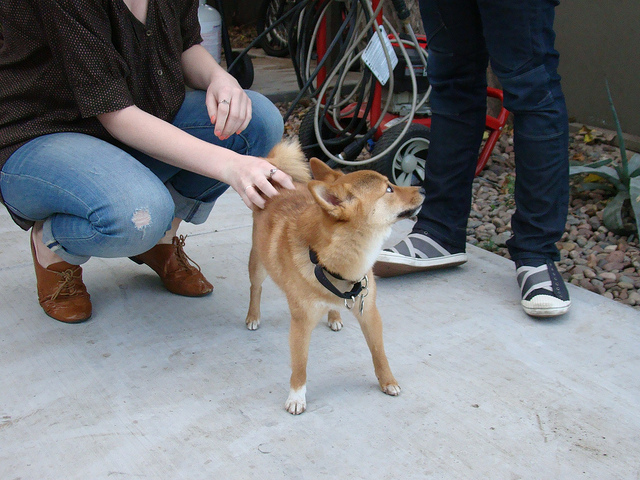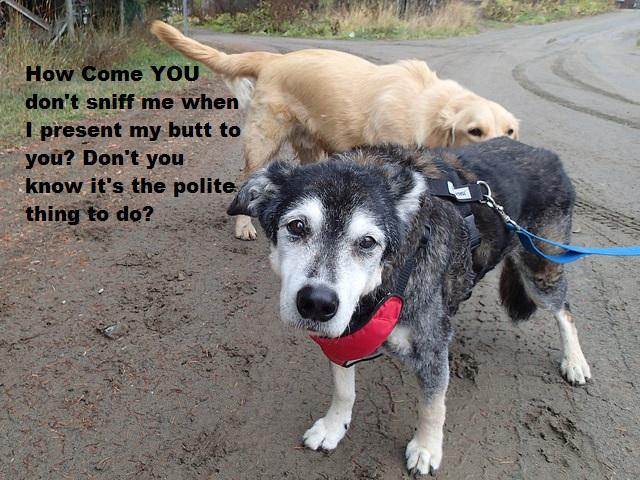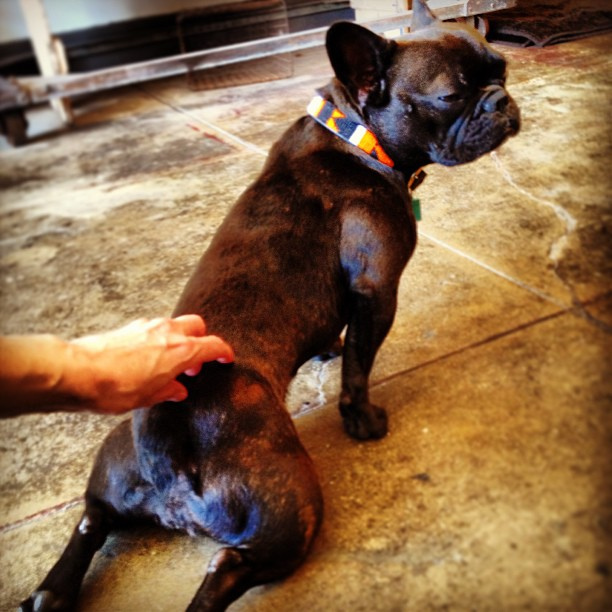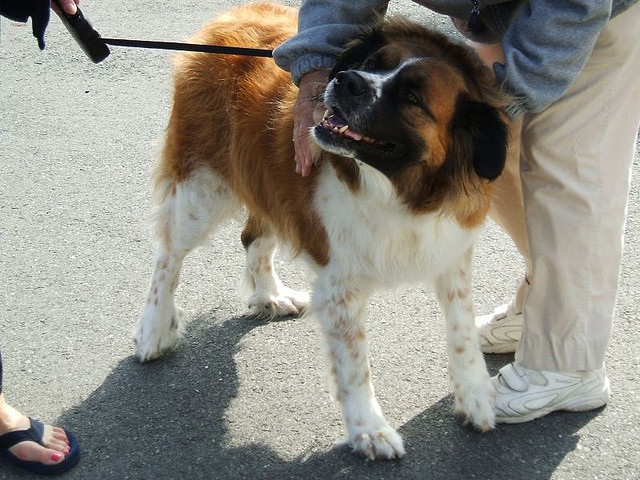Do you own one of those dogs that greets someone by immediately turning their back to them, often pushing their rump toward the person’s legs? It’s a strange behavior, no doubt, and fairly common. We have had many people ask why dogs do this on our forum, so we went to an animal behavior expert to get the answer.

Sherry Woodard CPDT-KA is Best Friends Animal Society’s resident animal behavior consultant. As an expert in animal training, behavior and care, she develops resources, provides consulting services, leads workshops and speaks nationwide to promote animal welfare
Before Best Friends, Woodard, a nationally certified pet dog trainer, worked with dogs, cats, horses and a variety of other animals. She also worked in veterinary clinics, where she gained valuable experience in companion-animal medical care and dog dentistry.
What are the theories on why some dogs put their rumps on us?
SW: Dogs offering the rear to other dogs is seen as a normal dog-dog greeting. The first theory is dogs guess that we greet in the same ways they do. Some dogs probably spend a lot of time trying to teach us how to have what they consider good social skills.

Other theories include that the dog just wants us to scratch where it is difficult for them to reach and that it feels good to be scratched on the rear, near the tail. Some dogs may be more comfortable offering their rear because we don’t normally try to control them from that end – offering your head often has people grabbing your collar and holding you, pulling you, getting maybe too close and causing a little fear.

Is there a “correct” human response to this?
SW: I would say yes, the correct human response is to give them a brief scratch. If you don’t want to touch the dog or the dog is too persistent you can move away and ignore the request.
Is there ever a reason we should train our dogs not do to this behavior?
SW: I actually reinforce the dogs I work with for soliciting touch from people, being friendly and comfortable with people is consider highly adoptable in shelters and rescues. Whether its offering a toy or offering their rear for a scratch, people should see it as, this dog is friendly, enjoys touch and wants a relationship with people.

Why is it important to know what this behavior means?
SW: This behavior is sometimes labeled as pushy or the dog is trying to control the human. I disagree with that. I believe it is important to know that we do not always communicate like dogs. For example, sniffing each other. They are dogs and come with dog language we can learn to understand. Watch how they greet and play with each other, they offer their bodies and they use their bodies to make new friends and have fun with friends they know and trust. I recommend that everyone spend time with a variety of dogs to learn more about how they communicate with their bodies and voices. Every dog is an individual. They come with their life experiences, or lack of experience. They can be bold and bounce off of every new friend or they can be fearful and avoid getting too close or allowing others to get close to them.
Learning more about dog language is fun and seeing the differences in many dogs is fascinating. Some dogs are great teachers for other dogs – how to play is one of my favorite things to watch dogs teach each other. Making friends and being comfortable with humans and other dogs helps keep dogs from being fearful and getting snappy.
